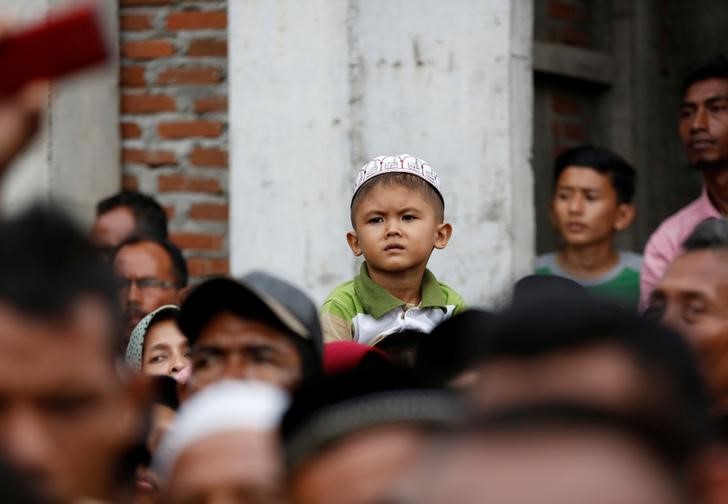By Coco Liu, Thomson Reuters Foundation
Last week’s earthquake in Indonesia’s northern province of Aceh damaged dozens of schools, undermining children’s ability to recovery from the trauma of the disaster, aid groups said.
Wednesday’s 6.5 magnitude earthquake, which toppled dozens of buildings and killed at least 100 people, was the worst disaster to hit the region since the 2004 Indian Ocean tsunami.
Among those affected are 30,000 children and young people whose schools are closed as a result of the earthquake, said aid agencies.
In Aceh’s Pidie Jaya, one of the hardest-hit districts, the quake damaged nearly a third of schools, with at least seven completely destroyed, according to Yayasan Sayangi Tunas Cilik, a local aid agency.
Many residents of the town of 140,000 have been sleeping in shelters and relief workers last week were handing out food, water, and blankets.
With students now on their winter break, the destruction might not have an immediate impact on their study, but it undermines their sense of safety, said Ronald Sianipar of Yayasan Sayangi Tunas Cilik.
“When school buildings are safe, we know they are the best place for students to be following a disaster like this. It creates a sense of normality and safety and supports children’s emotional recovery.” he said in a statement.
“With no schools to go to, there are no places for students to gather together and release their fear,” he said.
At least 80 million children living in areas affected by war or natural disasters had their education disrupted last year, according to a report by British charity Theirworld.
Schools offer a safe place to learn and play which in turn can help children deal with trauma in the aftermath of a crisis, say experts, but education is often overlooked by aid donors.
When children are out of school, they are more vulnerable to falling prey to child labour, trafficking and extremism.
Sianipar said his organization was trying to help by creating play areas in camps where many families are living, and may set up temporary classrooms in tents.
Local authorities in Pidie Jaya say they plan to reopen schools in time for the start of the new semester in January. But aid workers say children are still fearful.
“Children in Pidie Jaya are afraid of going back to school,” Irsyad Hadi, spokesman in Jakarta for the global child rights organisation Plan International, said by phone.
“Many schools are badly damaged. Even though some schools only have minor damage, students and teachers are still concerned. They are afraid of entering buildings.”
(Editing by Ros Russell; The Thomson Reuters Foundation is the charitable arm of Thomson Reuters that covers humanitarian news, women’s rights, trafficking, corruption and climate change. Visit news.trust.org)




